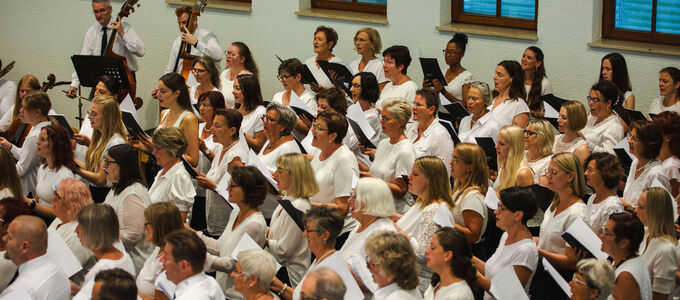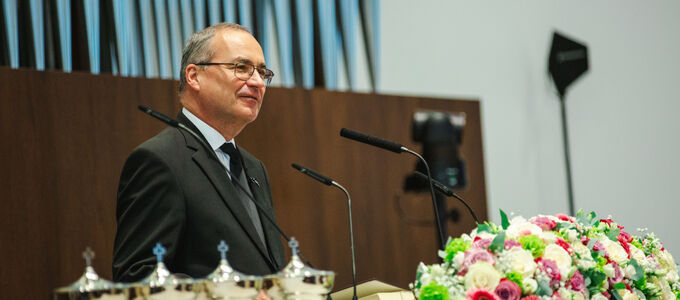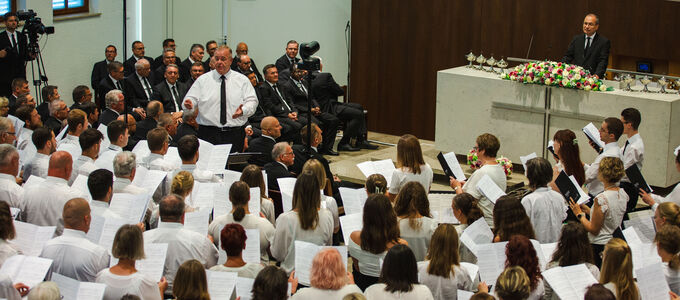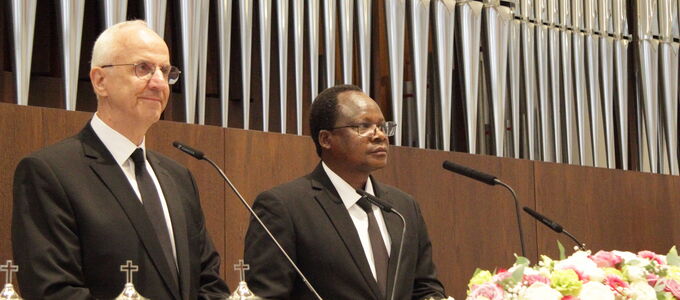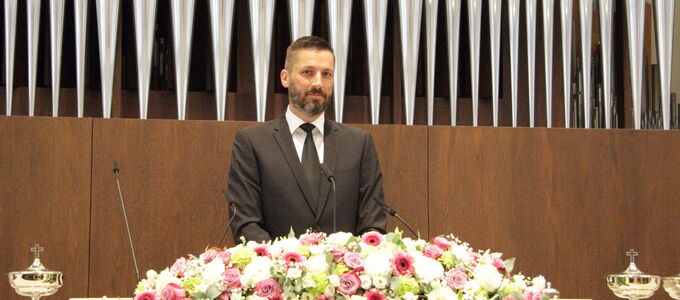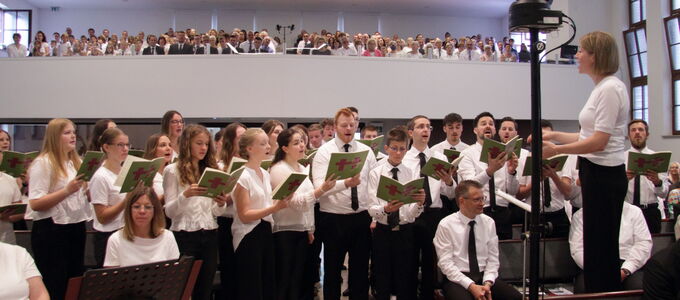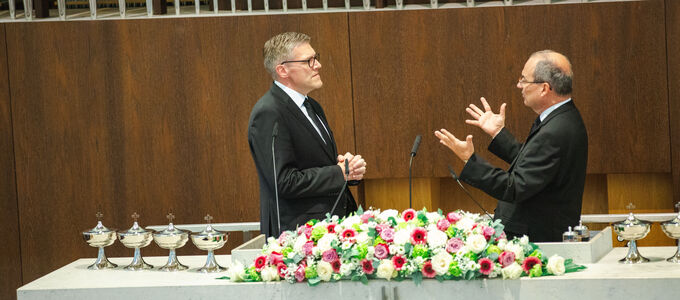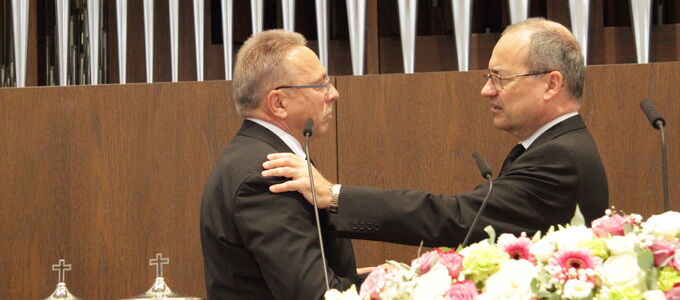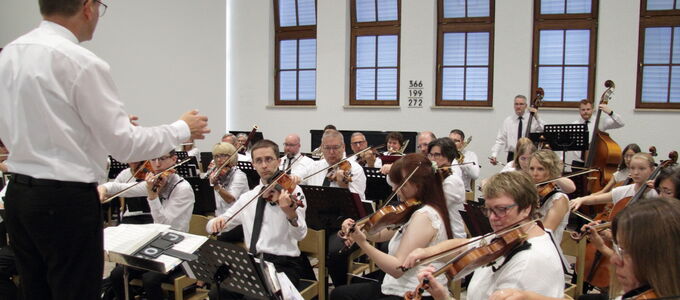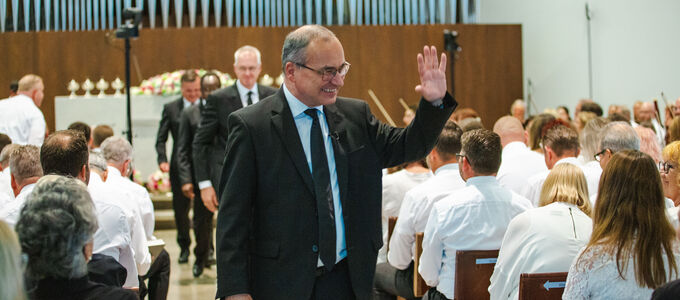Lightening one another’s burdens
“This divine service is a service for our congregation,” the Chief Apostle said. “Your congregation and my congregation. The subject is love among us, among New Apostolic Christians.”
The Chief Apostle gave some concrete tips for congregational life in a divine service on 28 July 2024 in Memmingen in Germany. His sermon was based on Galatians 6: 2: “Bear one another’s burdens, and so fulfil the law of Christ.”
“What are the burdens that we are to carry?” Chief Apostle Jean-Luc Schneider asked and supplied the answer, “Burdens are everything that weigh us down and everything that can slow us down on our path to salvation as followers of Jesus Christ.”
The burden of misfortune
“Suffering, worry, injustice, poverty, illness, pain. These are certainly burdens.” So how can we lighten one another’s burdens? Naturally, we cannot make them go away, he said. But we can help to lighten the load. Let’s not look away and resign ourselves to the fact that people sometimes just must cope with certain difficulties. “Let us reach out and pray for our neighbour and help where we can. And in any case, we can take time and listen and allow the other person to feel warmth and closeness.”
The burden of judgement
“Let us not make things even more difficult for our neighbour.” Because there are brothers and sisters in our congregation who do not have what we have: money, health, a happy marriage, faithful children, a family. Let us make sure that they do not suffer even more on account of our behaviour.”
“The more we brag about it—excuse the expression—the more difficult the situation becomes for them,” the Chief Apostle said, referring to social media. He went on to say, “We are grateful, but that should not lead us to judge: ‘Well, we have what we have because we did the right thing.’” He said, “That is not the case. You don’t deserve what you have. That is pure grace!”
The burden of imperfection
“Our weaknesses, our sinfulness, our imperfections: everyone has their own burden. That should make us humble enough to bear the faults and weaknesses of others.” Do not accuse, do not reproach, but react with an attitude of generosity: “Even if you are weak now, even if your behaviour is not right, I still love you and you are worth as much to me as everyone else in the congregation.”
The burden of ministering
“The law of Jesus Christ is: serve God and your neighbour.” And that means: “Divine services are a form of ministering. And we strive to ensure that everything works in the congregation.” But not everyone helps along, the Chief Apostle pointed out. “There are brothers and sisters for whom this load has become too heavy.”
“How do we react? Let us make this burden easier for them. And when they come, we should make them feel welcome. You belong to us. You are loved here. This is where you belong. And I am glad that you are here.”
Then the Chief Apostle said, “But now I address the brothers and sisters who only come now and then.” The responsibility in a congregation often rests on the shoulders of a few. “If there were several of us carrying this burden in some way, it would become easier for everyone.”
The burden of expectation
“Let us not place an unnecessary burden on others by expecting them to behave in a certain way: that is the way things are done in our congregation and you should behave like the rest of us.” Unity must not be confused with uniformity. “Let us not make ourselves the standard and expect others to be, speak, think, and have the same attitude as us.”
The burden of differences
“Christ expects us to be one in the congregation. This is not necessarily an easy burden to carry, because we are all so fundamentally different and so terribly imperfect.” This can be discouraging especially for young people. “How do we talk about our congregation at home?” It is not a question of denying negative aspects, but we must also show them, “You know, I love my sister and my brother all the same.”
In some congregations there are only a few children or young people left. “Let us make sure that this small group of young members feel at home in our congregation.” It does not take much to show, “You know, I care about you. I am glad you are here.”
The Chief Apostle summed the service up as follows: “Bear one another’s burdens. That is the law of Christ. And He looks to see how we go about this in our congregation. And if we make an effort to really love our neighbour, the congregation can be what it wants to be, we can be what we want to be: the good Lord will grant us His grace.”


